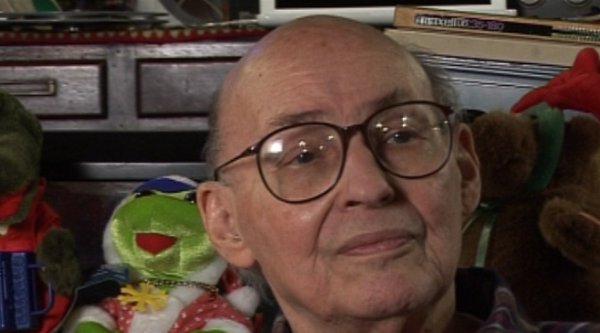NEXT STORY

Andrew Gleason's eight year plan of attack
RELATED STORIES

NEXT STORY

Andrew Gleason's eight year plan of attack
RELATED STORIES


|
Views | Duration | |
|---|---|---|---|
| 71. Freeman Dyson proves what I couldn't | 4603 | 03:17 | |
| 72. Solving Emil Post's problem | 3565 | 03:00 | |
| 73. Solving Post's unsolvable problem leads to the 'Minsky Machines' | 1 | 3400 | 03:49 |
| 74. Andrew Gleason's eight year plan of attack | 3215 | 03:40 | |
| 75. 'You can pull something with a string, but not push it' | 3055 | 02:02 | |
| 76. Will machines ever understand Aesop's fables? | 3001 | 00:51 | |
| 77. Analogy is the difference between human and computer thinking | 2 | 3143 | 05:07 |
| 78. Developing ideas of intelligence in the 1960s | 2647 | 02:01 | |
| 79. Unexpected problems with language machines | 2666 | 00:50 | |
| 80. The history of the laws of physics | 2857 | 02:44 |


I forget why I’m mentioning this, but...
[Q] Because it’s part of the cowardice principle.
Yes, right. So here was a case where somebody else diagnosed that I might have the skill set for doing that and Davis had been trying to prove this thing for years and I believe I solved it in about three or four weeks. But, it was quite interesting and then having solved that I... I got some techniques which led to a couple of new discoveries and one was... one is called Minsky Machines occasionally and what I discovered is that you could make... there’s such a thing as a universal computer and Turing... Alan Turing was... and Gödel and Church – another professor at Princeton – had made some discoveries about these universal machines and so one question was... in a universal machine is a computer that can simulate any other computer if you write a big enough program for that. So the question is: What’s the smallest universal computer? And what I discovered after solving Post’s problem was that you could make a universal computer that just had one... one register or tape and all this machine could do is add one, it had... it could store two numbers, so it has two registers, they’re unlimited size, and the operations that... the instructions the machine can do is just add one to one register, add one to the other register or subtract one from either register and when it subtracts it can test to see whether the register is zero or empty and that’s all. So basically it’s... you can make a universal computer with just these two registers and four instructions.
So knowing that, lots of people have been able to show that there exist many other kinds of universal computers, but this was sort of the simplest one that started a sort of new field and the guy who’s exploited that field a lot is Steve Wolfram, he wrote a whole book about what you can do with universal computers of various sorts and... anyway, that came out of this just chance interaction where Martin Davis calls me up and says: 'I think you could solve Post’s problem', and I said: 'What’s Post’s problem?' And... and his guess was right.
So I think I’ve done the same thing sometimes for some students, but I can’t remember it and every now and then... like just yesterday at that dinner, some ex-student came over and said oh... I asked him what he was doing and he said: 'I’m... I'm the leader in this new field here and it’s something that you got me to be interested in.' So... so that’s a weird kind of social network where math... mathematicians find the... there are a fair number of cases where you find two mathematicians solving a problem that one couldn’t.
Marvin Minsky (1927-2016) was one of the pioneers of the field of Artificial Intelligence, founding the MIT AI lab in 1970. He also made many contributions to the fields of mathematics, cognitive psychology, robotics, optics and computational linguistics. Since the 1950s, he had been attempting to define and explain human cognition, the ideas of which can be found in his two books, The Emotion Machine and The Society of Mind. His many inventions include the first confocal scanning microscope, the first neural network simulator (SNARC) and the first LOGO 'turtle'.
Title: Solving Post's unsolvable problem leads to the 'Minsky Machines'
Listeners: Christopher Sykes
Christopher Sykes is a London-based television producer and director who has made a number of documentary films for BBC TV, Channel 4 and PBS.
Tags: Princeton University, A New Kind of Science, Martin Davis, Alan Turing, Kurt Gödel, Alonzo Church, Emil Post, Stephen Wolfram
Duration: 3 minutes, 50 seconds
Date story recorded: 29-31 Jan 2011
Date story went live: 12 May 2011